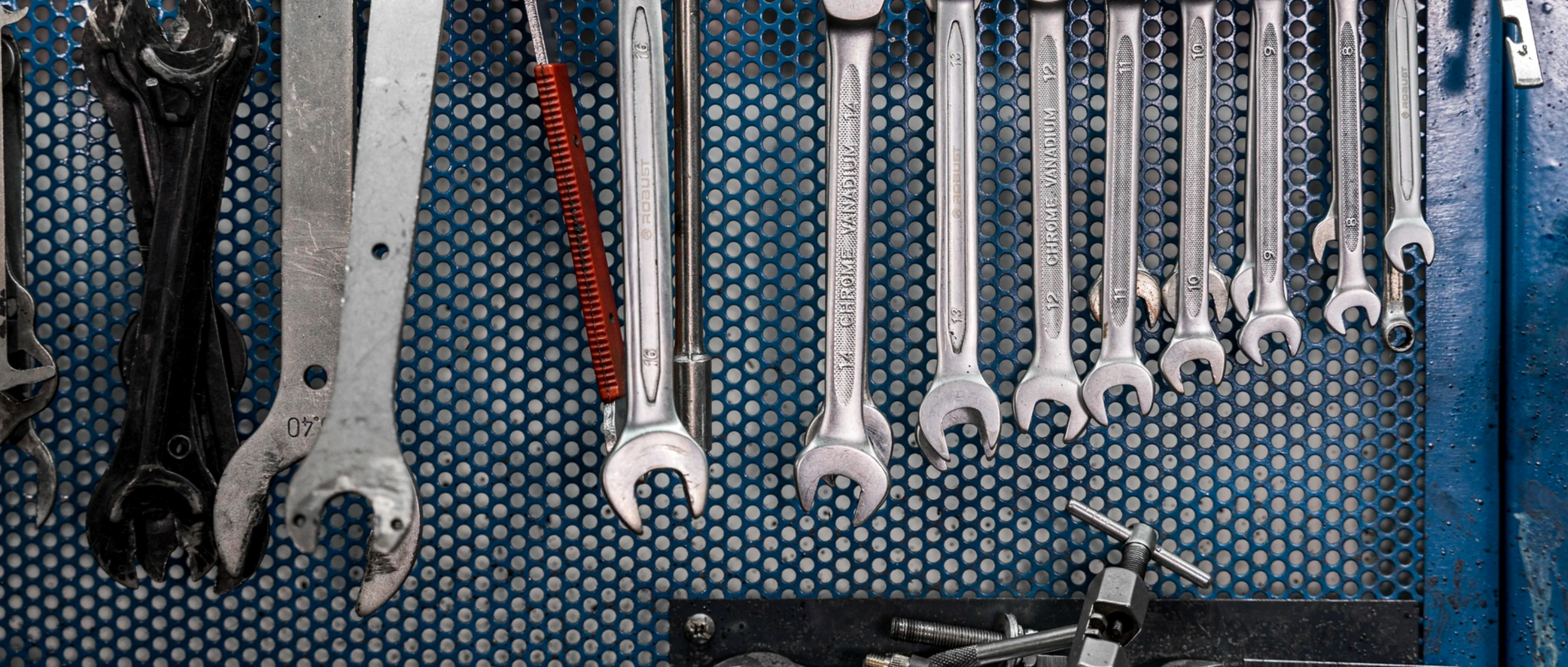Archive for June 2021It Wears on You (Tire Rotation)Posted June 27, 2021 7:34 AMIf someone told you there was a fairly inexpensive way to improve your vehicle's handling, fuel economy and extend the life of your tires, you'd probably ask, "What do I have to do?" The answer is to rotate your tires. But you have to do it regularly. A lot of drivers think skipping tire rotation is a way to save money. But when you don't rotate your tires, they will almost certainly wear unevenly. That's because when your tires touch the surface of the road, the friction and traction causes miniscule parts of the rubber to come off. And that process isn't exactly the same on each corner of your vehicle. Some vehicles have the drive wheels in the front, some in the rear and some on all wheels. Rotating your tires at regular intervals minimizes the differences in the way the tires wear. The amount and pattern will be spread out equally if your tires spend time at all different positions. The more even the wear, the more consistent traction, handling and braking will be. All four tires will last longer this way, and when it is time to replace your tires, they'll all be worn out the same so you can replace all four with the same model tire. Some people who choose not to rotate their tires find that one or two will wear much faster than the others, and often they'll replace just the worn ones. While you can find similar tires, they won't all be the same and will certainly not have the same amount of wear. There are different tire rotation patterns depending on several factors: front-wheel drive, rear-wheel drive, all-wheel drive, directional tires/wheels, different sized wheels/tires on front and rear axles. Also keep in mind that when your tires are new, some tire manufacturers require you to rotate them or else they won't honor the warranty. Your manufacturer recommends intervals for tire rotation, so it's best to follow their suggestion. Your vehicle service facility can advise you when you need to get your tires rotated. And many facilities include free tire rotation for as long as they're on your vehicle if you buy your tires at their shop. Car Doc On The Island If You Drive Like a Maniac (Aggressive Driving is Bad for a Vehicle)Posted June 20, 2021 11:15 AMWhen someone mentions driving like a maniac, they're not talking about you, surely? Besides the safety issues of aggressive driving, you should know that your vehicle will last a lot longer if you'll just mellow out a little. Here are four traits good drivers follow if they want their vehicles to go the extra distance. Cool—The driver who can't wait to get to the next stoplight is just shortening the life of his or her vehicle. Jackrabbit starts and uneven acceleration hurts your engine because the valves and cylinder heads are stressed more. All of those moving parts will wear out faster as well as other components that are connected. That means things like the air conditioner, power steering pump… just about anything that attaches by a belt or a pulley. Oh, and you'll be generating more heat. Heat is one of a vehicle's worst enemies. Warm—If you get in your cold vehicle which has been sitting overnight, start it up and rev the engine high, you've just put a lot of stress on your engine. That's because you didn't let the oil (that's been sitting down in the oil pan at the bottom of the engine) get to the moving parts in order to lubricate them. Some manufacturers advise that you run your vehicle for about 30 seconds before you take off. And if it's really cold out, you may be wise to let the engine run for a minute or two before putting a load on the engine. Also, for the first 5-15 minutes, keep your RPMs on the low side and don't jam on the accelerator. Smooth—You're trying to get somewhere in a hurry and have to jam on the brakes while traveling pretty fast. Just that one time can do more damage to the brakes than you would think. Lots of hard braking can overheat your brakes and damage your rotors, wearing them out way faster than someone who drives with a smoother touch. Hard braking also strains suspension parts, tires and engine mounts. Smart—You know what PRNDL stand for. Those are the letters in your automatic transmission (Park, Reverse, Neutral, Drive, Low). Here are another couple of letters: IQ. A smart shifter never goes into R to D without completely stopping the vehicle, unless, of course, you're anxious to spend some big dollars on your automatic transmission. These days, it's common to get 200,000 miles/320,000 kilometers out of a vehicle, no problem. It just takes regular maintenance (oil changes and regular service) and one other thing. Showing off: showing off a little moderation in driving habits with a big payoff in the end.
Weather Station on Wheels (Vehicle Sensor Maintenance)Posted June 13, 2021 11:33 AMYou probably never thought about it, but your vehicle is like a rolling weather station. It can check the outside temperature, let you know when the roads are slippery and help you deal with rain. And how it does all those things is pretty cool. First, just like any weather station, a vehicle has sensors that measure the driving and weather conditions you find yourself in. Some of those sensors can control computerized systems in your vehicle to react to the weather. It depends on whether you have a 2-wheel, 4-wheel or all-wheel drive vehicle how those sensors will respond. Let's start with temperature. Most vehicles now have a thermometer that measures the temperature outside. It's usually in the front, and likely will tell you on the instrument panel what the outside temperature measures. But a temperature sensor will also tell your vehicle's computers to turn on or off certain systems like the heating or air conditioning. If your ambient temperature sensor isn't working right, some symptoms are a malfunctioning automatic A/C or a temperature display that is way different than the app on your phone says it should be. Your vehicle will also have sensors that measure your speed at each wheel. They work with an onboard computer to measure slippage in any of the wheels so traction control and antilock brakes work correctly in case of slick roads. Your vehicle can measure something called longitudinal and latitudinal acceleration, and it uses a yaw sensor to do it. That helps it determine if you might be in an oversteering or understeering situation. It's important because it works with your vehicle's brakes to apply stopping power to keep you in control. A steering wheel sensor tells the vehicle's computers what the driver is doing with the wheel. It also can work with those wheel sensors to measure how slippery the roads are, whether it be due to a wet (rain) or granular (gravel or sand) surface. By sending different torque or braking to each wheel, it helps the driver maintain control. More and more vehicles now have a rain sensor that can turn on the wipers automatically when they measure precipitation on the windshield. So, you're driving your own weather station, and making sure all this data is coming in properly depends on how each component is working. Regular service and maintenance on these systems is important to make sure they can do their job. Your rolling weather station can't predict the weather, but it can sure help you deal with it, so help it do its job right.
| ||
SearchArchiveApril 2016 (16)May 2016 (5) June 2016 (4) July 2016 (4) August 2016 (5) September 2016 (4) October 2016 (5) November 2016 (4) December 2016 (4) January 2017 (5) February 2017 (4) March 2017 (4) April 2017 (5) May 2017 (4) June 2017 (4) July 2017 (5) August 2017 (4) September 2017 (3) October 2017 (5) November 2017 (4) December 2017 (3) January 2018 (5) February 2018 (4) March 2018 (4) April 2018 (5) May 2018 (4) June 2018 (4) July 2018 (5) August 2018 (4) September 2018 (5) October 2018 (4) November 2018 (4) December 2018 (5) January 2019 (5) February 2019 (4) March 2019 (5) April 2019 (4) May 2019 (4) June 2019 (5) July 2019 (4) August 2019 (4) September 2019 (5) October 2019 (4) November 2019 (4) December 2019 (5) January 2020 (5) February 2020 (4) March 2020 (5) April 2020 (4) May 2020 (5) June 2020 (4) July 2020 (4) August 2020 (5) September 2020 (4) October 2020 (4) November 2020 (5) December 2020 (4) January 2021 (6) February 2021 (4) March 2021 (4) April 2021 (4) May 2021 (5) June 2021 (4) July 2021 (4) August 2021 (5) September 2021 (4) October 2021 (5) November 2021 (4) December 2021 (4) January 2022 (6) February 2022 (4) March 2022 (4) April 2022 (4) May 2022 (5) June 2022 (4) July 2022 (5) August 2022 (4) September 2022 (4) October 2022 (5) November 2022 (4) December 2022 (4) January 2023 (5) February 2023 (4) March 2023 (4) April 2023 (5) May 2023 (4) June 2023 (4) July 2023 (5) August 2023 (4) September 2023 (4) October 2023 (5) November 2023 (4) December 2023 (5) January 2024 (5) February 2024 (4) March 2024 (5) April 2024 (4) May 2024 (4) June 2024 (5) July 2024 (4) August 2024 (4) September 2024 (5) October 2024 (4) November 2024 (4) December 2024 (5) January 2025 (4) February 2025 (4) March 2025 (4) | CategoriesKeys to a long lasting vehicle (2)Timing Belt (2)Fuel Economy (8)Brakes (12)Fluids (7)Maintenance (8)Air Conditioning (6)Safety (1)Exhaust (6)Service Standards (3)Steering (8)What Customers Should Know (67)Dashboard (1)Fuel System (4)Cooling System (5)Alternator (5)Battery (9)Auto Safety (5)Windshield Wipers (2)Service Intervals (2)Wheel Bearings (1)Customer Detective Work (1)Shocks & Struts (2)Tires and Wheels (2)Tire Rotation and Balancing (3)Alignment (4)Winter Tires (1)Tires (8)Suspension (1)Inspection (3)TPMS (2)Drive Train (3)Automotive News (2)Safe Driving (1)Fuel Saving Tip: Slow Down (1)Winter Prep (3)Check Engine Light (2)Oil Change (4)Brake Service (2)Differential Service (1)Spark Plugs (1)Older Vehicles (1)Headlamps (1)Transmission (4)Transfer Case Service (1)Engine Air Filter (1)Cabin Air Filter (1)Fuel Pump (1) | |

AUTONET TV

Testimonials

My truck broke down last week and after calling around Car Doc was the one that was able to get it done sooner. From the minute I called till the day that I pick my car up, they kept me informed they were very professional, respectful and courteous. I will definitely be using them going forward.~ Robert Serena, 03/25/2025










